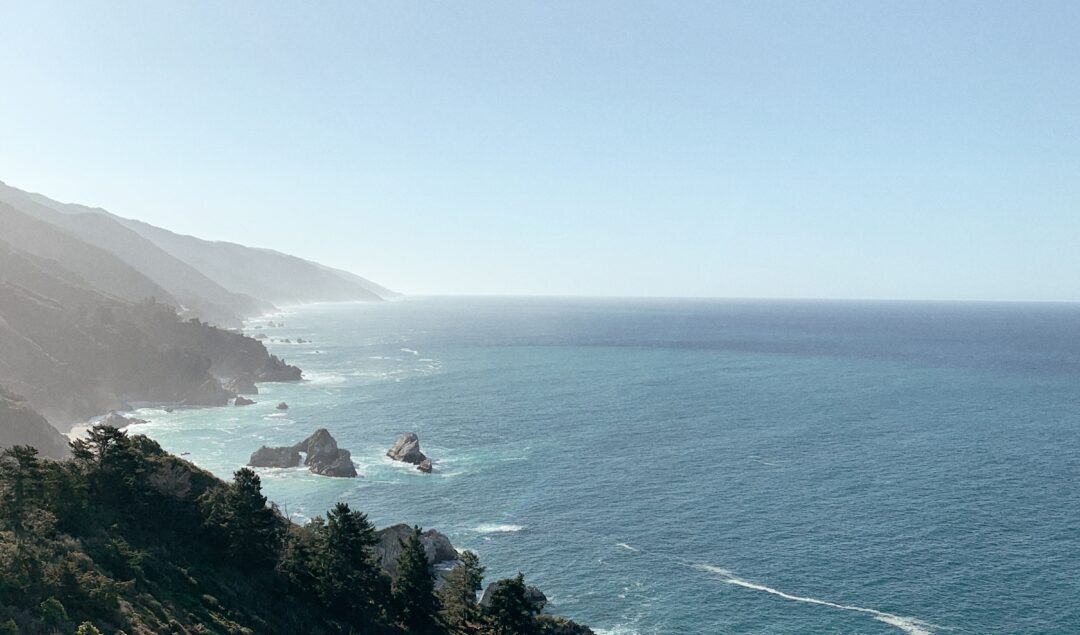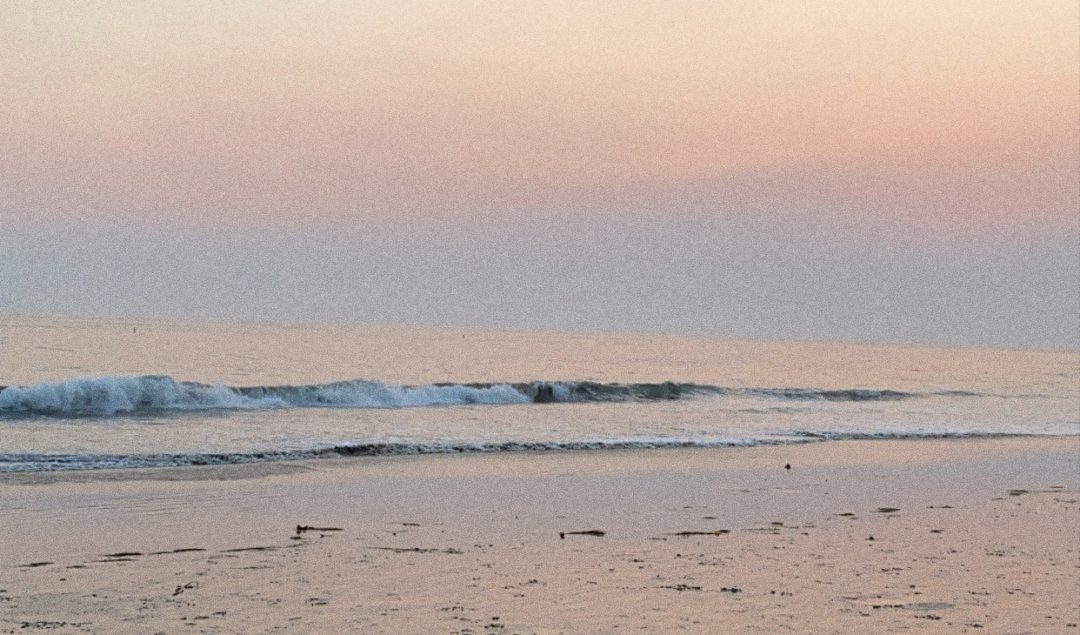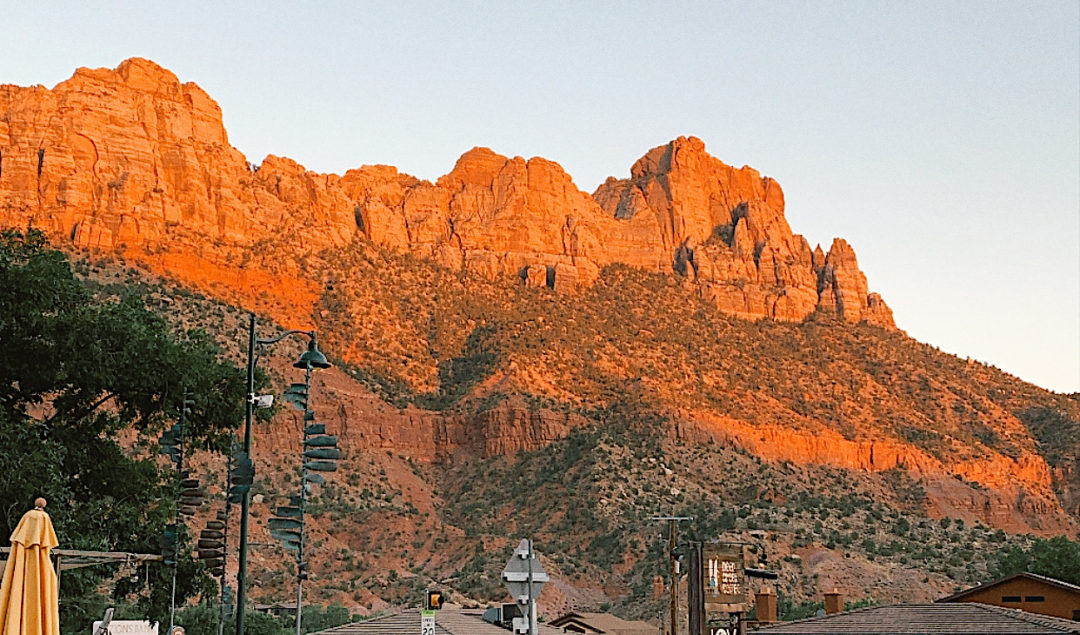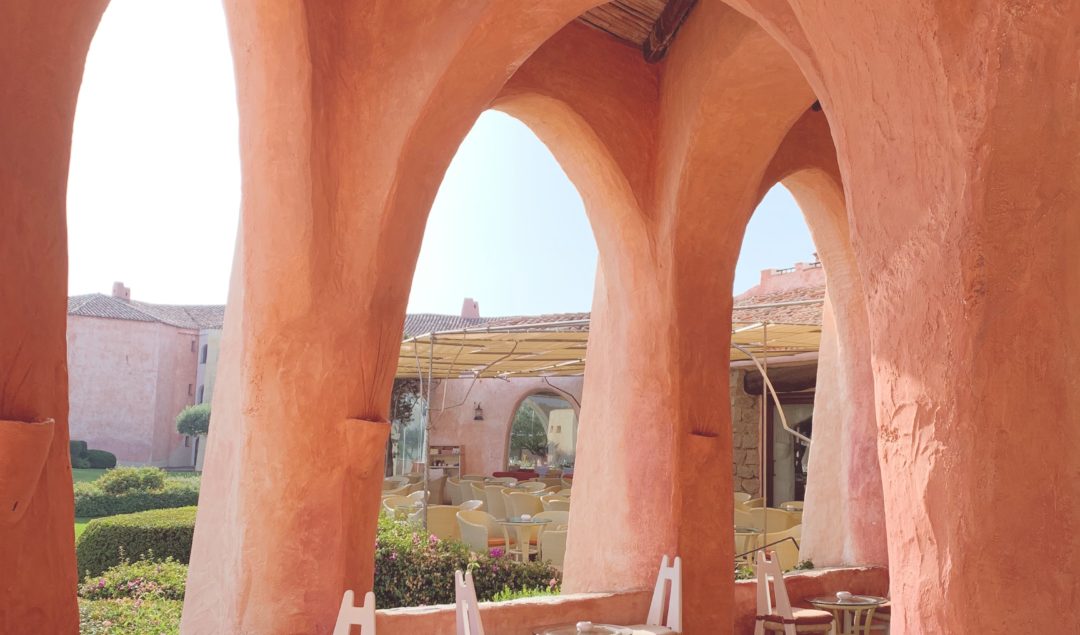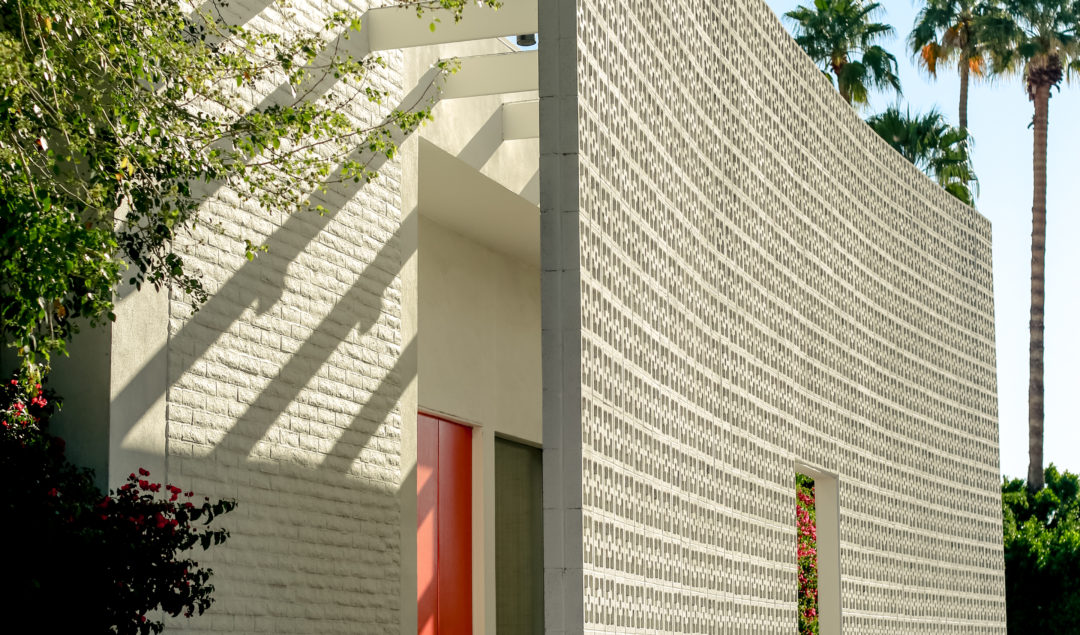Life and travel these days is a lot different than a year ago, but I’m not complaining. Between the pandemic and wildfires on the west coast, we’ve been feeling a stronger desire than ever to escape the city life in favor of nature and smaller towns.
[ See: my Zillow searches all over Wyoming and Utah for a ranch. ]
After staying in LA for the past 6 months, we made a last-minute decision to finally get out and visit a few national parks. We’ve been wanting to visit Zion and Bryce National Park for a couple of years now, so I was really excited to be finally pulling the trigger on a road trip.
Zion Travel Guide
To start off, I’ll be honest – I’m not the most outdoorsy girl. My idea of a hike is usually going to Runyon Canyon… but any hesitance I had about taking a hiking oriented trip quickly disappeared as soon as we breathed in the fresh air and took in the natural beauty the parks had to offer. And obviously, we aren’t alone – I’ve seen more people taking road trips than ever this year, and I have to say I’m here for it.
I’m all for traveling safely during this pandemic, and I think a road trip or camping trip is one of the best ways to do it. I’ll get into my thoughts on traveling in the middle of the pandemic later on, but I wanted to share everything you need to know before visiting Zion and Bryce. From how to get there, what to do/see/pack/eat, and all of the logistics you need to know while planning a trip. There are so many guides and blog posts already on Zion that have more details on specific hikes, but this is my take on a guide to Zion for the maybe not so traditionally outdoorsy visitor.


How to get to Zion
From LA, Zion is about a 7-hour drive. If you stop for gas or food or need to take a break, it’ll likely take a little longer. To shorten the driving time, you can also fly into Vegas and drive the 2-2.5 hours from there. We drove the entire way (stopping for In-N-Out, obviously!) and found the drive to be manageable. There isn’t too much to see between Vegas and Zion, so I’d suggest filling up on gas and snacks and driving straight through to Zion.
When to go and how long to stay for
This really depends on what you like to do and how much time you have. If you’re really cramped for time, you could do 1 day in each park and see the main attractions. Also if you have more time to spare, I would recommend at least 2 days in Zion and 1-2 days in Bryce. If you don’t like hiking you could probably even see both parks in one day, but I personally would recommend 3-4 days split between the two parks. It’s really up to you.
As far as the best time of year to visit, apparently October is one of the best months as the weather has cooled down a bit. The summer (June through Labor Day) is the most popular time of year to visit, but you will run into huge crowds then. Even in the middle of September, Zion felt very crowded. The weather during our visit in mid-September was still pretty hot – parts of the park can reach over 100 degrees during the day and then drop down to the 40s and 50s at night. The park rangers mentioned May as a great time of year to visit as well, although it can still be a bit chilly. Winters are gorgeous in the park, but it may be snowy or too cold to hike. Weather can vary a lot in the desert and mountains, so always do your research before you pack!



Where to stay
We booked our Zion trip about a week and a half out on a whim and were really relieved to find that in mid-September you could easily book lodging! However, for more popular spots apparently you need to book a few months in advance at least.
We stayed at Zion Wildflower, a new resort that opened just this year that is located about 20 minutes outside of the park. We chose to stay in one of their glamping tents – if you’ve never “glamped” before I would recommend trying the experience out at least once for the novelty. They also had options to stay in a wagon (giving me major Oregon Trail vibes!) or their individual bungalows, which are equipped with AC and a bathroom.
As far as staying in a tent goes, the beds at Zion Wildflower were extremely comfortable and the bedding was very warm. There’s also a portable AC unit in the tent which comes in handy during the day (you don’t need it at night). During the day time the tent is unbearably hot when it’s 100+ degrees outside, but you’re also in Utah so… go take a hike : ). The tents also had 2 extra twin-sized beds, which is perfect if you’re traveling with friends or even children. The bathroom situation was super easy and clean. If you stay in a tent or wagon, there are shared bathrooms with showers and toilets.
A note on sleeping in a tent
You will feel and hear the wind for most of the night. For that reason, I did not sleep well for the first two nights because I was constantly being woken up in the middle of the night by the wind or thought someone was unzipping our tent.
Overall, the resort was super cute and the employees were incredibly nice. We utilized the shared space to make s’mores at night (they give you the cutest s’mores kit when you check-in) and grill one night for dinner. I loved our stay overall and would absolutely recommend checking them out if you’re looking for a unique glamping experience outside Zion.
The other glamping option in Zion is at Under Canvas – they’re a more established glamping resort with locations over various national parks. I initially wanted to stay here but they were fully booked during our travel dates. I also read that they don’t have outlets in the tent, so if you book here be sure to bring an external charger or two. However, they do have bathrooms in the tents, which is definitely a bonus if you’re looking for a more luxurious experience.
If you’re looking for a more traditional lodge stay, Zion Lodge Hotel is the only hotel inside the park and incredibly popular for that reason.
This resort books up far in advance, so definitely book early. I would also recommend staying in Springdale, the town right outside the park. You can either walk or take the free shuttle to the park entrance and you’ll be close enough to catch the sunrises and sunsets inside the park. These rental units caught my eye when we were driving out of the park one day, their website shows that they also book up far in advance.



What to do
+ Hike!
If you’re visiting Zion, you’re most likely there to hike. Angel’s Landing and the Narrows are the two most popular hikes. You could theoretically do both in a day if you’re up for it, but if you only have time or energy to do one, I would hands down recommend the Narrows (the bottom-up hike – if you want to do the longer top-down hike you need a permit). Don’t get me wrong, Angel’s Landing is beautiful, but it’s extremely crowded and the chain rail section that the hike is known for is currently closed due to COVID-19. The Narrows is a unique experience you likely won’t do anywhere else – and is absolutely worth the trip and the effort. More information on the Narrows below, but for both hikes, I’d recommend an early start.
Other trails we hiked: Emerald Pools/Kayenta Trail, Canyon Overlook, and Kolob Canyon. We were really excited about Observation Point but found out it’s been closed for some time due to a bad rockslide. We were also hoping to check out Watchman Trail and Hidden Canyon, but these trails are also closed. Check with the visitor center or a park ranger the day of your visit as conditions are constantly changing – especially if you are planning on hiking the Narrows.
+ Ride bikes through the park
There are tons of shops right outside the park that rent bikes and electric bikes for half and full-day rentals. Renting a bike is a great way to see the park as you don’t need a shuttle ticket to get around and the roads are paved and mostly flat. You can also access the scenic path that is otherwise only accessible to the shuttle buses and stop along the way to take photos or hike.
+ Take a drive through the park
If hiking isn’t your thing, you can take a scenic drive through the park from the visitor center to the east entrance. The entire drive will about an hour and you’ll have a lot of opportunities to stop along the way for easier walks and hikes. Easy trails I’d recommend if you don’t want anything too strenuous are Canyon Overlook (easy 1-mile loop, very little elevation) or Pa’rus Trail, which is flat and paved (it’s also is the only trail in the park that allows dogs!).
Zion National Park Tips
+ You’ll need to buy a pass for admission.
We bought the National Park Pass that gives you access to all parks for a year – for $80 it’s an incredible deal! Plus, your money is going towards preserving our national parks which are truly some of our nation’s treasures. If you visit 3 parks in a year your pass pays for itself – and with the ongoing pandemic, it’s a good excuse to get out and enjoy some fresh air, which I’m sure we all need. We’ve already bookmarked other parks we are looking forward to visiting over the next year.
+ Parking inside the park fills up quickly, usually by 8 or 9 am.
You can also park in Springdale and walk or take the shuttle to the entrance, but this will run you about $20 a day. In a similar vein, it’s definitely better to get to the park earlier in the day to avoid the crowds. Catching the sunrise in the park is also worth the early morning wakeup call.
+ Book your shuttle tickets in advance!
Because of the pandemic, shuttle tickets are timed and slots are limited. Tickets are released two weeks in advance for half of the month. If you miss out on buying advance shuttle tickets, you have a few options.
You can walk up to ride the shuttle after 3 pm every day, opt to ride a bike around the park, hire a private shuttle to take you through the park (these cost between $30-$40 per person), or try your luck at booking last minute shuttle tickets the day before. Every day, shuttle tickets for the following day go on sale at 10 am Mountain Time. We were able to snag tickets really easily this way – you just have to be online and ready to buy them on the dot. Try to buy the earliest shuttle passes in the day, this gives you a lot more flexibility when it comes time to enter the park. If this sounds stressful, trust me it’s not. It’s still much easier than buying Coachella tickets (RIP).
On that note, I do have to admit – Zion feels a little like Disneyland.
Not in a bad way necessarily, but because the park is so popular (it’s the 3rd most popular national park in the US) there are people everywhere and at times very long lines for the shuttle. If you’re looking for a more secluded hiking experience, Zion probably isn’t the best park for you. I still think it’s absolutely worth the visit – the park is breathtakingly stunning – but you won’t ever really feel like you’re truly alone in nature.
+ Pack enough water and snacks
It gets hot inside the park and once you’re on the trail you really don’t have many options for food or water. It’s absolutely worth it to invest in a proper backpack to carry everything you need. More on snacks below!
+ Make sure you have proper gear
The main items I would recommend are proper hiking shoes (light trail runners will suffice for most of Zion, but for some trails, you might want sturdier hiking boots with ankle support), lightweight socks, moisture-wicking clothes, a hat, and sunscreen.


Tips for the Narrows
By far, the Narrows was the highlight of our trip. It was unlike anything I’ve ever done, and even though I had a lot of concerns about hiking in a river, I ended up absolutely loving it. The most important things to keep in mind – preparation is key, and go at your own pace.
+ The entire hike is about 9 miles in the water, but because it’s out and back you can turn back at any time.
We started around 10:30am and got back to the shuttle around 2:30pm – hiking in the river surprisingly takes a lot out of you. I would say go earlier in the day to avoid crowds, however, the mornings are colder. Around noon the sun started hitting the river and it warmed up significantly.
+ If you aren’t a super experienced hiker I would say you absolutely need to rent equipment for the narrows.
Sure, you can do it without (and we saw many people doing it in their regular trail running shoes or even barefoot in sandals), but I really wouldn’t recommend it. Due to the current – which can be strong – and the rocks, you really want a waterproof shoe that has toe and ankle support. Since you most likely don’t own anything that foots the bill, you can rent a day hiking set for $25 at Zion Outfitters, which is located right outside the park. For summer months, you’ll get a pair of boots, neoprene socks, and a walking stick. I can’t imagine doing this hike without that equipment – I would have turned back much earlier than I did in actuality. On colder days, you can also rent pants that will keep you warmer in the water.
+ The water is cold, but bearable in summer months.
At parts, the Narrows can get fairly deep – up to your waist, depending on how tall you are – so it’s important to also wear moisture-wicking clothes. I made the mistake of wearing cheap biker shorts I got from Amazon that are not ideal for water , and ended up with heat rash all over my legs. No good.



A note on Bryce
+ We only did a day trip to Bryce from Zion (it’s a quick 2-hour drive between the two parks). But I highly recommend making the trek if you have time. This may not be a popular opinion, but in some ways, I actually preferred Bryce to Zion. The views aren’t as majestic as the massive rocks in Zion. But the hoodoos and much smaller crowds make it worth it. Also, because so many of the trails in Zion were closed, we actually enjoyed our hike in Bryce much more.
+ Lodging and dining is much more limited in Bryce than Springdale. There are a few lodges and Airbnbs nearby. But the area feels significantly sparser than Springdale. We brought our own lunch and snacks the day we visited.
+ The two most popular hikes are the Figure 8 Loop (6.4 miles) and Fairyland Loop (8 miles). Both are moderately strenuous and give you incredible views of the canyons and hoodoos.


Where to eat
Before leaving LA we packed up the car with tons of snacks and a cooler full of drinks. I’m SO glad we did. We did dine at a restaurant outside a couple of times in Springdale (which is super cute and has some of the best food outside a national park I’ve ever had), but we also cooked a meal at Zion Wildflower and ate a lot of snacks and sandwiches on the go either in the car or in between hikes. A few spots I would suggest in Springdale:
+ Feel Love Coffee
A cute new coffee shop with a lot of unique specialty lattes. It’s expensive though – don’t be surprised if your latte with non-dairy milk ends up running you close to $10. You can also park here for the day and walk over to the visitor center easily.
+ Oscar’s
Popular Tex-Mex restaurant, there’s usually a wait but it moves quickly. The food, while a little heavy, honestly hits the spot after a long day of hiking.
+ King’s Landing Bistro
More upscale dining by local standards but the food is really good. Plus if you snag a table outdoors you get a beautiful view of the park and sunset.
Other restaurants we didn’t eat at but heard good things about:
Cafe Soleil for breakfast/lunch, Spotted Dog Cafe, and Bit & Spur.
There’s a great natural food market in Springdale as well. Sol Foods has all of the snacks and beverages you could want for your stay in Utah.


What I’m glad I packed
Before I left LA, I went to REI (probably for the first time ever) and bought a pair of trail runners. And some Smartwool socks – honestly money very well spent. This combination kept my feet dry and blister-free for the entirety of the trip.
Zion is over 4,000 feet above sea level and Bryce is over 8,000 feet above sea level. So you can easily feel the altitude whether you are hiking or not. I felt weirdly dehydrated for most of the trip. But drinking Nuun throughout the day as opposed to when I already felt dehydrated made a huge difference.
You’re in the sun all day and the last thing you want is a sunburn when you have multiple days of hiking planned. Supergoop is my favorite sunscreen brand that I wear every day regardless.
Technically I stole AJ’s. But after making fun of him for wearing it in the past I learned firsthand how helpful it is to wear this hat on the trail. A normal baseball hat works as well. But ideally, you have something with a wide brim that can shield your face and the back of your neck.
+ Lots of layers
The temperature swings a lot throughout the day and the weather can change at a moment’s notice. Thin and packable lightweight layers go a long way.
+ Blister bandaids
We didn’t need to use these, but they are so much better than regular bandaids at covering and healing blisters. These are a lifesaver for any shoe, but especially when you are logging 10+ miles a day.
+ Our own snacks and meals
National parks aren’t known for having the best food. And with the current pandemic, we didn’t want to spend too much time dining out around other people. Thankfully we had a big cooler. So we packed a ton of food for the drive and our hikes and replenished throughout the trip.
What we brought:
- Dried mango
- Turkey jerky
- Lesser Evil Popcorn
- Dave’s Killer Bagels
- Protein bars
- Justin’s almond butter packets
- Deli meat for sandwiches
- Ready to drink cold brew (<< a must for early mornings before the coffee shops open)
What I wish I packed
+ Lotion and anti-itch cream.
The desert is so incredibly dry, even by LA standards. My skin had a complete freak out and I ended up with hiker’s rash all over my legs.
+ More functional clothing
Some activewear sets are more for lounging or aesthetic than actual performance. When I was actually on the trails I found myself wishing for more technical fabrics and clothing that had pockets and zippers. Lululemon makes great functional pieces that also happen to be cute. (A pocket for your phone, zipper for keys and credit card, etc.).
What I’d do if we had more time
+ More trails
There are so many options for hiking in Zion and Bryce. If hiking is your thing you could easily spend a week between the two parks. Because of the trail closures, we ended up doing most of the trails we were interested in. But I would happily come back in the future to explore more of the parks.
+ Visit a different park
Utah has 5 national parks, in addition to Zion and Bryce there are Arches, Canyonlands, and Capitol Reef National Parks. They aren’t terribly close though. So if you want to hit all 5 on a trip you will definitely need over a week to see them all and drive through the state.
+ Additional local sites
I’ve still been meaning to visit Horseshoe Bend and Antelope Canyon. And hope we will be able to make another road trip throughout the Southwest sometime this year
Is it safe to travel right now?
Finally, I want to address traveling during the pandemic – definitely a sensitive topic at the moment. This is not something we took lightly. As we felt extremely confused by the regulations and risks associated with traveling. And weighed the pros and cons of doing so for a very long time. Ultimately, we decided that being outdoors and finding destinations within a drivable distance would be the safest way to travel.
We also agreed that if we were going to travel, we’d want to adhere to as many safety precautions as possible. For us, this meant wearing masks in public and avoiding crowded public spaces, particularly indoors, and proper hygiene practices. I actually felt travelers and locals alike adhered to rules and mask compliance was incredibly high in Utah where we went. We also looked up case numbers by county and state to make sure we wouldn’t be traveling to an area with a known outbreak. As far as future travel goes, we would like to get tested more frequently before and after (possibly even during) to ensure that we are doing our best to keep others safe.
The decision to travel is highly personal. We did our best to be safe and make educated decisions along the way. And try to allow our decisions to be guided by the latest scientific studies on transmission. And the likelihood of transmission via different activities. In the meantime, the future of our travel will likely be a lot more local and outdoor. And after this trip, I’m truly ok with that.
![]()
![]()
![]()





![]()
![]()
![]()

